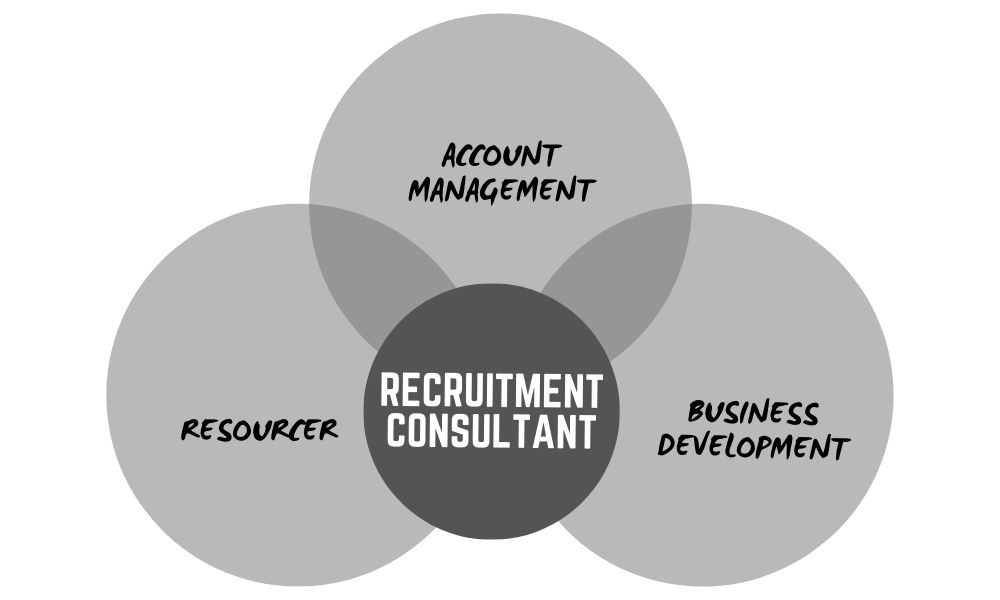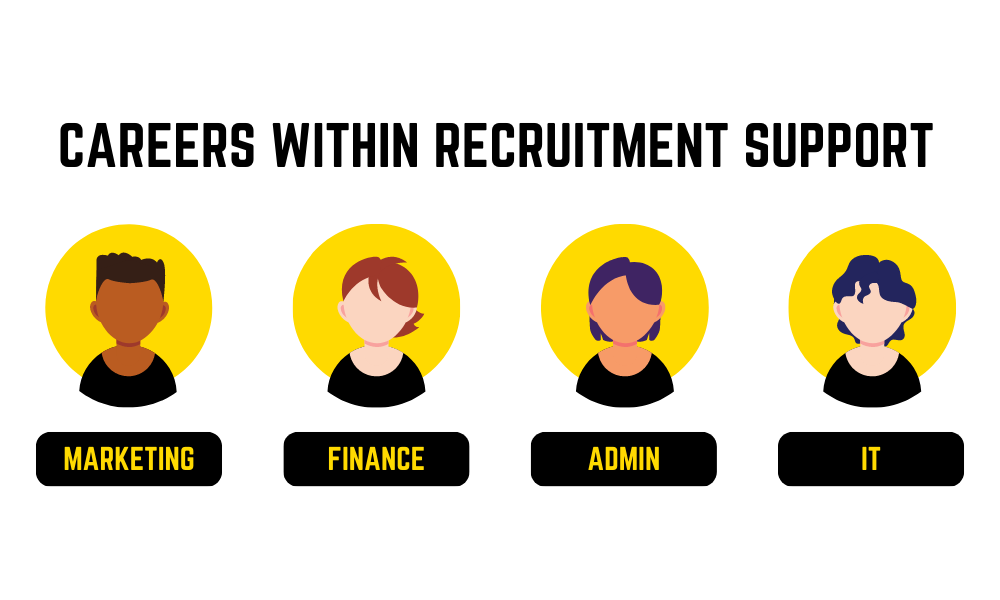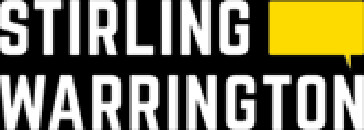Careers In Recruitment
What are the careers in recruitment? It’s a question that we wanted to answer because there are more than you might think.
You’ll hear a lot of people say that they fell into recruitment. As for many our industry isn’t the first thing that people think about for their careers. In fact, for some, it’s the last thing they’d want to go into. This is for a couple of reasons.
Firstly, there’s a misconception that all roles in recruitment are soul-destroying hard-hitting sales positions. Whilst a few careers in recruitment involve hard, cold selling. There are so many positions in the industry that don’t. So, there really is a role for everyone.
Secondly, the recruitment industry has a bad reputation – just try Googling ‘recruiters are’ and you’ll see what we mean (obviously after you’ve read this blog). But a perception has been created off the back of a handful of bad recruiters. For the most part, we are decent people that genuinely care about making sure that candidates find the right job and clients keep the right people.
So, in this blog we’ll go through all of the different careers in recruitment, talking about how much you can earn, what the jobs entail and the general recruitment career path that you can expect from our industry!
Recruitment Account Manager
Salary – £27,000 – £38,000 per annum (with extra earning potential with bonus and commission)
So, what does an account manager do in recruitment? In essence, they act as the middleperson between the client and the consultants. The core of account manager jobs in recruitment is to build long-term relationships between clients and the agency. As part of this, they will:
- Improve retention and sales with existing clients.
- Find new clients to partner with.
- Ensure that all service level agreements (SLAs) are met.
- Communicate new hiring needs to the assigned recruitment team.
What skills are involved in recruitment account management jobs?
As these are typically client-facing roles, account managers need to have fantastic relationship-building skills. However, it’s rare that you’ll just work with one employer. So, to be successful as a recruitment account manager you’ll need to have project management, strategic planning and excellent negotiation skills. As a result, so many industries have transferable skills for these jobs. Especially if these careers are customer service lead.
What is the typical career path for an account manager?
The typical career path for account managers will lead to a Senior Account Manager role. Sometimes, depending on the size of the company, you can also progress to an Account Director position as well. Both of these positions will result in you looking after a team of account managers.
However, this really is a position that can take you anywhere in recruitment, like business development or even a recruitment consultant.
Back to the contents or keep scrolling to read more!
Recruitment Resourcer
Salary £22,000 – £26,000 (with extra earning potential with bonuses and commission)
Resourcers focus entirely on the candidate side of recruitment. Sometimes, this can be working alongside a Recruitment Consultant or other recruiters to help them attract, engage and assess candidates.
As a recruitment resourcer, you’ll find that you end up working within one specialism or sector. This is because it is easier to recruit on mass when you are an expert in that field. However, resourcers can also be drafted in to help with more difficult-to-fill positions.
What skills do you need to be a recruitment resourcer?
Similarly to the account manager position, recruitment resourcers need to have effective communication and project management skills. As resoucers will always be working on more than one campaign, some of these might have multiple hires as well- especially if you’re a resourcers that focuses on temporary recruitment.
What is the career route as a resourcer?
Often, resourcers are considered an entry-level position in recruitment. So, this really is the starting point for your career in recruitment. Typically, the progression in this role is to a Senior Resourcer or Team leader. Although, you’re also able to transition into other recruitment roles like consultants.
Back to the contents or keep scrolling to read more!
Business Development
Salary £28,000 – £35,000 (with extra earning potential with bonuses and commission)
Business development roles in recruitment combine a little of traditional sales (converting leads to buy now) and long-term project planning to attract new customers (which is known as business development).
However, it’s not all about cold calling. Whilst being on the phone will always be important to business development roles, the use of marketing and personal branding business development in recruitment have become a whole new entity.
What is a career in business development?
Like all careers in recruitment, you’ll always be able to go up the ladder. With sales that can mean becoming a senior, team leader or director. However, climbing up the ranks in sales requires more than just phone calls. A career in business development also needs you to assess the market (and the company’s position in it), evaluate the agency’s current service portfolio and then suggest ways to expand the company in the marketplace.
Back to the contents or keep scrolling to read more!
Recruitment Consultant
Salary £25,000 – £30,000 (with extra earning potential with bonuses and commission)
This is the most known career in recruitment. The recruitment consultant.
To put it simply, recruitment consultants find people and match them to the clients. Considering the needs of both parties to make the best match. Recruitment consultants are highly tuned in to the overall needs of the company. They’ll understand the personality fit required for the culture, understand the industry of the client and even. Whereas recruiters are typically less in tune with this, so it is more of a find arm and legs approach. This career in recruitment combines all three roles that we’ve just discussed, the Venn diagram below demonstrates how they connect and how you can transfer between them all.

The natural progression route for this job is to become a Senior Recruitment Consultant. Although they’ll typically have similar responsibilities, a senior will have more experience in their sector and hiring practices, will have a track record for success and may even be leaned on in terms of other business support- like training
360 and 180 Recruitment Consultants
You’ll hear of two types of recruitment consultants. 360 and 180.
360 recruitment consultants will manage the entire hiring and sales process. Delivering an all-encompassing service that covers new business development, candidate attraction + selection and service reviewing.
180 recruitment consultants don’t do the business development side of the job. So, they’ll receive the job specification and then the process will be the same as a 360 recruitment consultant. But, a 180 recruitment consultant is not the same as a Resourcer. As there is still an element of client relationship management as a 180 recruitment consultant.
Recruitment Manager
Salary £35,000 + (with extra earning potential with bonuses and commission)
If you’re a recruitment consultant and want to manage people. The final stage of this career in recruitment will be a Manager. This can be as a Team Leader, Manager or Director.
Depending on the agency, you could be a billing manager or take a more HR approach. A billing manager means that you’ll continue to run your own client base alongside managing a team. So, this really is a lot of plates to spin. If you go down the HR route, your role will be more focused on people management. At either level, your targets will be adjusted to reflect your duties.
Becoming a recruitment manager
If becoming a recruitment manager is one of your career goals, then you need to start prepping for this stage sooner rather than later. You don’t need specific qualifications in order to become a manager, even though some articles will say that you need a degree in HR or similar fields. It really isn’t needed.
This is because becoming a recruitment manager is more about having the right skills or experiences and the right attitude. So, start trying to foster a management mindset sooner focusing on:
- Leadership – so that’s your reliability, empathy, patience and decision-making skills.
- Overall business knowledge – from Finance through to marketing
- Strategic Thinking and Problem Solving
- And all of the normal skills you need to be a recruitment consultant.
If you start demonstrating these skills earlier in your career, it will help you to climb the recruitment career ladder. To help you develop these skills, you can join an association like the Recruitment and Employment Confederation (REC), get yourself on training for example ILM courses or network and find yourself a mentor!
Back to the contents or keep scrolling to read more!
Recruitment Support
Salaries vary massively depending on role
When you think of recruitment, you’ll always think about the careers above. However, there is a whole other arm to the industry – the support team. These are the people that help keep an agency running smoothly!

Each of these roles has its own challenges. However, all must be able to keep up with the fast-paced nature of the industry and cope with both the highs and the lows that recruitment brings. Like with the other careers in recruitment, the progression for support roles can lead you all the way through to management. It really just depends on the agency you join and its growth plans. So, with recruitment support roles in particular, it is always worth digging deeper into the long-term business strategy to see how your career can grow with them.
Back to the contents or keep scrolling to read more!
In Summary
Careers in recruitment are as vast and varied as the industry itself. Like any job, if you work hard in recruitment you’ll reap the rewards. However, our industry isn’t for the faint of heart – especially in the first 6 months of your career. So, we’d always recommend that you do thorough research into what working in recruitment in like.
To help you understand what careers in recruitment are like, we’ve created a bunch of content around this. Sharing our teams experience and career journey since joining the industry. You can check it out in our ‘Careers In Recruitment’ Playlist on YouTube. We also have a couple of episodes on our podcast (The Recruitment Aversion), that focused on your first 6 months and what to look for in an agency. So, listen to those on Spotify!
One final thought on careers in recruitment. The buzz that you get from helping someone find their dream job never gets old. In our industry, you can really make a positive difference to people’s lives. And that’s one of the main reasons we love recruitment.
Careers at Stirling Warrington
We’re always on the lookout for both experienced consultants and those wanting to start a career. So long as you embody our values we’d love to have you on the team. To see what life at Stirling Warrington is like, what we give our team and the careers our team have had check out the join our team page! But, what do careers at Stirling Warrington look like? To understand this, we asked our team to share their journey. Watch out YouTube playlist to learn about how they got into recruitment, how they’ve progressed in their careers and what it’s like to work at SW!

